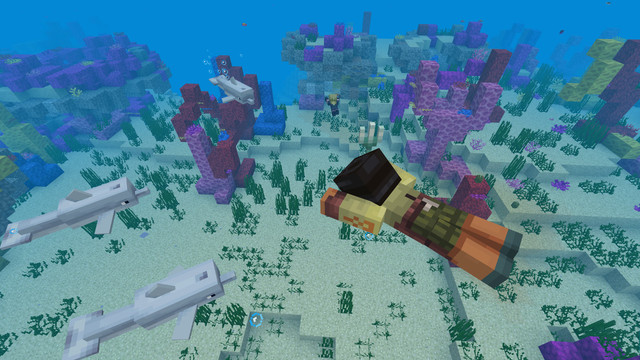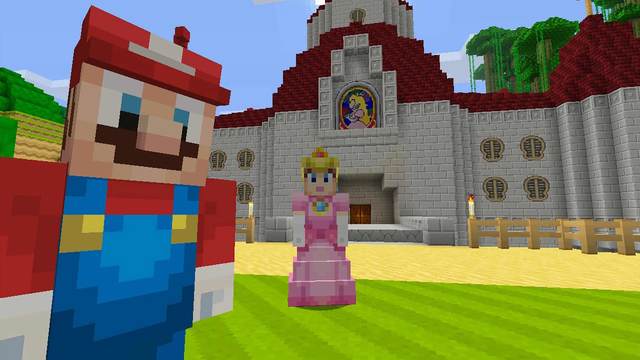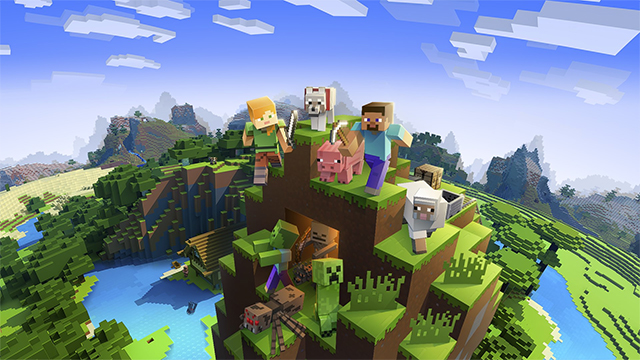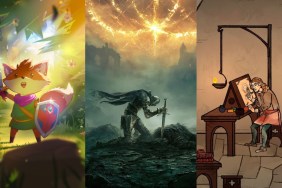Minecraft is nothing short of a cultural phenomenon. It revolutionized video games when its first version released in 2009, encouraging developers everywhere to rethink how they approached their own well-established franchises. People who didn’t normally play games were persuaded to try out the title after learning about its educational benefits. Of course, many picked up Minecraft simply to spend more time with friends. Here are a few reasons why Mojang’s masterpiece continues to be worthwhile for fans both new and old.
Minecraft in 2019 | Great updates

While updates from 2014 to 2017 weren’t met with positive reception from the game’s community, last year’s “Update Aquatic” (1.13) and last month’s “Village and Pillage” (1.14) introduced a hefty amount of new content for fans to enjoy. The first transformed Minecraft‘s previously lifeless oceans into vastly different environments.
Frozen, cold, normal, lukewarm, and warm waters could be explored alongside regular and deep oceans. Each has its own distinct fauna and flora to discover alongside elaborate shipwrecks and dilapidated ruins. It’s fascinating to see kelp and sea grass gently sway in the trenches as a school of tropical fish swim by, especially if one has grown used to the unsophisticated oceans of the past.
“Update Aquatic” didn’t stop there. A new type of creature called the phantom now spawns in the overworld if players neglect to sleep for three days. Phantoms will increase their numbers the more that fans put off sleep, swooping down at them from the sky above until they decide to get some much-needed rest. Chest restrictions have also been removed, allowing players to place regular chests side by side without having to use trapped chests.
April’s “Village and Pillage” update was just as impressive as “Update Aquatic,” if not more. It introduced a new type of ill-willing villager called the pillager, the likes of which is armed with a crossbow and can pursue players from 100 blocks away. A new beast called the ravager helps pillagers destroy everything in their wake, from homes and crops to innocent NPCs. Speaking of creatures, foxes, llamas, and pandas now roam around the world, scurrying across forests or climbing up bamboo.
Villages now vary depending on their biome, meaning desert structures have different infrastructure than tundra structures. The fast and fluid crossbow can be commandeered from a pillager so that fans can take down targets from afar. Crafting has also been overhauled, allowing players better access to frequently used items by requiring less rare materials. A bunch of useful new objects can be built too, including blast furnaces, smokers, cartography tables, and more. That’s not to mention that combat will be improved at a later date, after Mojang receives feedback. It all goes to show that the studio is listening and still changing the game even all these years later.
Minecraft in 2019 | Millions still play it

One may be quick to assume Fortnite is the most watched game on YouTube, considering how frequently it appears on the platform’s trending section. According to YouTube’s director of gaming content and partnerships, however, that wasn’t the case last year, even with the battle royale genre’s huge surge in popularity. Rather, Minecraft remained the site’s most discussed title globally.
This makes sense considering how Microsoft had announced the game had 91 million monthly players this past March. For comparison, Epic Games stated that Fortnite garnered 78 million monthly players last September. The fact that Minecraft hit 74 million users in late 2017 indicates that the game is growing steadily despite its competition. It wouldn’t be a surprise if the game manages to hit over 100 million monthly players by the end of 2019, especially if Mojang promises new updates similar to its last two. It crossed 176 million copies sold this past weekend, so it may have reached that threshold already.
Minecraft in 2019 | It’s still unlike anything else on the market

Few games out there successfully emulate Minecraft‘s addictive and immersive qualities. Fortnite has building mechanics, but is much more focused on competitive play. Indie games like Eco allow players to build sustainable civilizations with one another, but lack the same emphasis on crafting whatever it is one desires. Major franchises like Fallout or Dragon Quest have either designed ancillary modes or spin-off titles clearly inspired by Minecraft, but each has failed to win over a huge portion of the sandbox community.
Many of today’s best AAA titles boast vast open worlds to explore, but few allow users to completely alter the terrain. These games merely make players the guests in their worlds. Minecraft, on the other hand, makes players feel like they’re a world’s overseer. Though this sensation is endemic to the sandbox genre, there aren’t many titles in this category that allow as much freedom. It’s easy to go back to Minecraft just to discover what lies inside a dark deep sea trench or what would happen if one ignited heaps of TNT around the base of a mountain. The game’s worlds beg players to keep digging until they find whatever they’re looking for.
If the above reasons weren’t compelling enough, a free-to-play AR mobile spin-off called Minecraft Earth is set to launch its beta this summer. It promises to allow players the ability to recreate some of their greatest structures in the real world, wherever they may be. Whether this secures Mojang’s world domination remains to be seen, though it’s likely that the title will motivate people to log onto servers they haven’t visited in a while. There’s always reason to reintroduce yourself to an old video game, no matter how long it’s been since you last enjoyed it. Lapsed players may find that today’s Minecraft feels like a whole new adventure worth taking.










